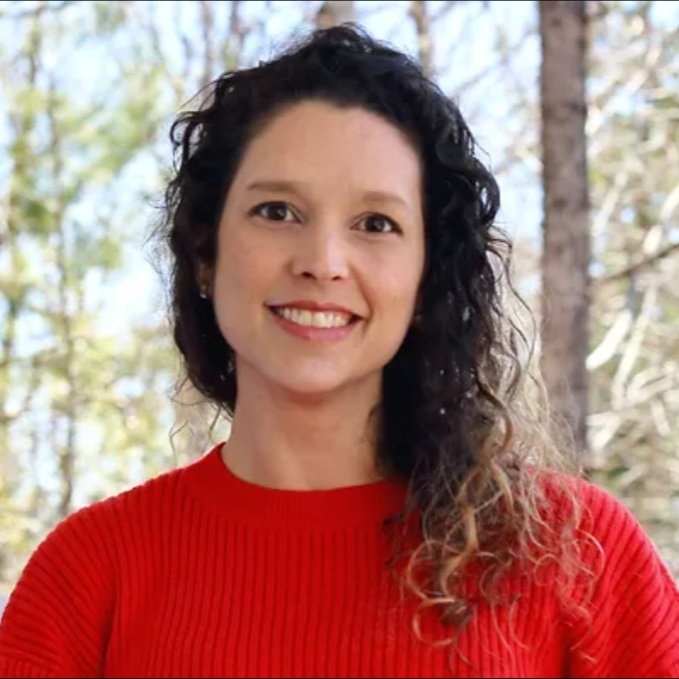HOME | ABOUT STONE SOUP | SPEAKERS | AGENDA | REGISTER
AGENDA
Watch up to 7 brand new live sessions on Oct. 20, 2023, then access the recordings for up to 3 months so you don’t miss a thing. Plus access recordings of the 2022 and 2021 Conferences when you purchase them as add-ons for up to 3 months as well.
8:45 am - 9:00 am EST Opening Remarks
9:00 am to 10:30 am EST
KEYNOTE - BUILDING LANGUAGE SKILLS WITH PEAK & A.I.M.
Decades have passed since the first behaviour-analytic treatments attempted the development of language abilities for persons with autism and other related conditions. During this same timeframe, a number of advancements were made in the basic behaviour analytic science that led some of us to a reconceptualization of the potential treatment approaches that could be possible. Relational Frames change everything. The three-term contingency is only partially responsible for controlling human behaviour. Over the past decade, the impact of Relational Frame Theory has moved to the front line for many behaviour analysts through its incorporation into the PEAK Relational Training System and the Accept. Identify. Move. (AIM) curriculums which make these once abstract concepts easy for any behavior analyst to understand and implement with clients they serve. This presentation will show that all ABA approaches are not the same in terms of client outcomes and that the breadth of our treatments can be enhanced by harnessing the potential of relational frames. A brief overview of both PEAK and AIM assessment and treatment tools will be described, along with data ranging from randomized trials, whole school building implementations, single-subject designs, and predictive regression models that suggest key factors influencing treatment outcomes.
1.5 BACB Learning CEUs
Networking Break
11:00 am to 12:00 pm EST
Cultural Responsiveness in Behaviour Analysis
The increasing diversity in the population, the fact many behaviour analysts work with individuals of various abilities and cultural backgrounds, and the requirements from the BACB® Ethics Code to engage in cultural responsiveness training, all point to the urgent need to incorporate cultural responsiveness in behaviour analytic practices. This includes every step, from the training and supervision of students to research and the delivery of behavioural services. Although the inclusion of cultural variables has been increasing in all areas of social science, including psychology and behaviour analysis (Beaulieu & Jimenez-Gomez, 2022; Jimenez-Gomez & Beaulieu, 2022), culturally responsive practices are not commonplace. The purpose of this talk is to review relevant literature, provide some practical suggestions to begin engaging in more culturally responsive practices, and highlight areas in which more research is needed.
1 BACB Learning CEU
11:00 am to 12:00 pm EST
The Role and Relevance of Basic Foundations for Applied Behavior Analysis
Behaviour analysis has grown exponentially in the past decade. As more BCBAs enter the workforce, the “business” of ABA has become a significant enterprise. The intense market demand for BCBAs has created the need for practitioner-oriented training programs that ABA consumers desperately need. As the evolution of ABA accelerates forward at unprecedented rates, there is a concern that the relevance of basic behaviour analysis is becoming less obvious.
This presentation proposes that quality ABA service provision relies on some fundamental linkages with the basic behaviour analytic literature. This presentation uses historical and research-based examples to highlight the importance of practitioners accessing basic research findings in behaviour analysis. The presentation concludes with strategies practitioners can use to search and access experimental findings to help mitigate applied problems.
Learning Objectives
Attendees will be able to define basic research in behaviour analysis
Attendees will be able to describe ways to access the basic behaviour analytic literature
Attendees will be able to provide examples of applied problems that required basic solutions in the ABA literature
1 BACB Learning CEU
Lunch Break
1:00 pm to 2:30 pm EST
Mental Illness: It isn't whatcha got, it's whatcha do.
This presentation examines the assumptions made by the DSM-V revised about mental illness and then takes a behavioural perspective on the issue. There are numerous assumptions about the nature and etiology of mental illness, and most of these assumptions, in one form or another, end up blaming the brain on the problems we see. In a manner of speaking, the brain is responsible for what we see but only in as much as it is involved in all our behaviour. Regardless of differences in the brain that may or may not be causal in nature, mental health diagnoses are absolutely, positively NOT made on the basis of structural or neurochemical abnormalities. They are in fact based on behaviour or lack thereof. In fact, the popular trend now is self-diagnosis. So now we have diagnoses that are almost entirely based on the verbal behaviour of the person with the alleged disorder. Even when diagnoses are rendered formally, with checklists and questionnaires and perhaps even direct observation and interaction with the individual, there is still no structural or neurochemical marker used to make a decision. This presentation will cover problems and pitfalls in diagnosis and then cover the important variables to attend to when we encounter an individual with any given diagnosis.
LEARNING OBJECTIVES
Participants will be able to describe the difference between having a mental health diagnosis and having kidney stones
Participants will be able to describe the differences between the measurement used in determining a mental illness category and the measurement used to determine whether or not someone has high blood pressure
Participants will be able to correctly restate the following: "He hallucinates because he has schizophrenia."
Participants will be able to describe how all clinicians make mental health diagnoses (i.e., what controls their verbal behaviour of rendering one diagnosis over another).
Participants will be able to break down mental health diagnoses into their observable behavioural components
1.5 BACB Learning CEUs
1:00 pm to 2:30 pm EST
TOUGH TALKS FOR OVERCOMING PERFORMANCE CHALLENGES
Whether you are a practitioner supervisor manager or leader there are certain conversations we all dread. These are the tough ones that require us to provide some sort of corrective feedback for poor performance or unwanted behaviour. If the right action isn't taken at the right time something regretful might happen as often the price of not having these tough talks can be far costlier than the temporary discomfort that may be experienced when having them.
With a combined 40 years plus of leading managing supervising and teaching using Behavior analytic approaches Dr. Paul Gavoni and Anika Costa share their experience and expertise in handling what can sometimes be the very uncomfortable position of having to deliver difficult feedback. Entitled Tough Talks, Paulie and Anika’s presentation will provide you with the strategies they have developed for determining precisely when difficult feedback is warranted to correct performance and how to deliver it.
1 BACB Learning or 1 Supervision CEU
Networking Break
2:30 pm to 3:00 pm
3:00 pm to 4:00 pm EST
Using Behaviour Science to Teach Employees Complex Professional Skills
Employees at all levels of an organization must acquire complex professional skills to promote a positive work culture and ensure the effective delivery of high-quality services. Too little research has been devoted to operationally defining, measuring, and improving these important skills. The talk will highlight various approaches to training employees to appropriately self-advocate in the workplace, have difficult conversations with their staff and colleagues, and effectively lead meetings. In addition, the content will emphasize resource-efficient efforts to train these desired skills.
LEARNING OBJECTIVES
The participant will be able to describe the benefits of training in complex professional skills.
The participant will be able to identify the component behaviours that comprise the target skills.
The participant will be able to describe the components of behavioural skills training as part of an evidence-based approach to training staff.
The participant will be able to discuss the results of studies evaluating ways to enhance resource efficiency of recommended training practices.
1 BACB Learning or 1 OBM-Supervision CEU
3:00 pm to 4:00 pm EST
Building effective social chains with individuals with autism
This talk discusses the conditioning of social responding through social chains and pattern games. Focusing on the establishment of fundamental building blocks for social interactions and language acquisition, known as early indicative responses, Dr. Espinosa emphasizes the importance of shaping rather than prompting these essential skills. Additionally, she explores the concept of ascent and its interpretation as offered behaviour within the framework of social chains. This talk aims to provide insights and strategies for constructing effective social chains with individuals on the autism spectrum, ultimately enhancing their social interactions and language development.
1 BACB Learning CEU
4:00 pm to 4:15 pm EST - Closing Remarks
Sessions will be recorded and re-posted for up to 3 months so you can go back and watch any sessions you missed. Some exceptions apply.
Missed last year’s sessions. Add them on as bonus sessions and get access to the recordings for up to 6 months.








